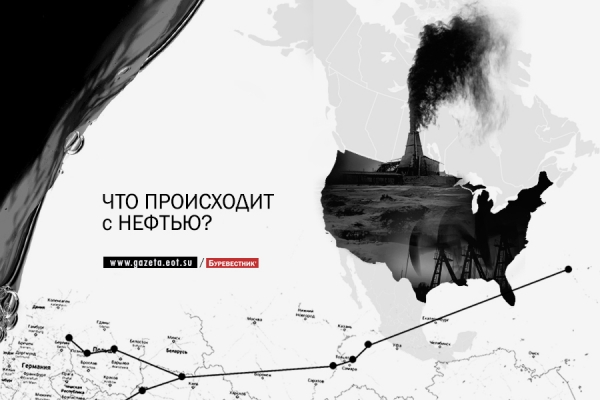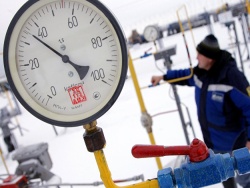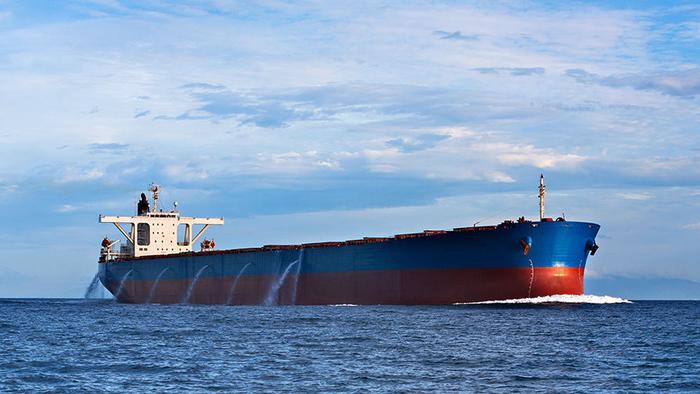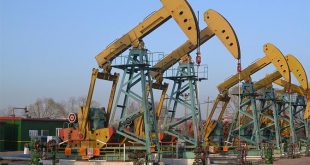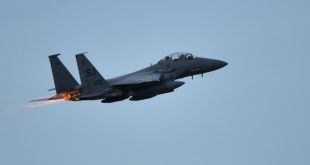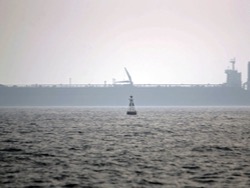
It took very little time after the entry into force of the Joint comprehensive plan of action (SCPD) and the lifting of sanctions on shipping and the movement of the Iranian ships in international waters. Nevertheless, Iran’s oil Minister Bijan Zanganeh a few months ago promised the Iranian and world community to quickly increase production “black gold” by half a million barrels after the lifting of sanctions.
The drastic increase extraction by 500 thousand barrels
The next day after the entry into force SCPD and lifting of nuclear sanctions, the Deputy oil Minister for international and commercial Affairs Amir Hossein Zamani-Nia participated in the conference on the occasion of the 60th anniversary of the establishment of the National Iranian tanker company (NITC) and gave an interview to own correspondent of the newspaper Jam-e Jam. In it the Deputy Minister reported an increase in production of Iranian oil by 500 thousand barrels, and stated: “Iran has high capacities immediately after the sanctions are lifted, he is able to increase its oil exports by nearly 500 thousand barrels per day, and in the future it will be possible to increase this amount even to one million barrels”.
“During the period of sanctions, he continued, is Iran has lost markets for its oil supplies, and there his place was taken by Saudi Arabia and other countries. Therefore our priority — to recover their former position.”
The Deputy Minister stressed that already now the Iranian oil is in demand, but the Islamic Republic is making efforts to increase its exports have minimal impact on oil prices.
Iranian oil industry is determined at any cost to regain those markets, which now belong to countries such as Saudi Arabia and the United Arab Emirates. This means that oil tankers of the Islamic Republic and its entire transport fleet for shipping must be in full readiness.
The willingness of the Iranian tankers
Executive Director of the National Iranian tanker company Ali Akbar Safaei (Ali Akbar Safayi) said that his organization is working quite well. He said that the average life of the tankers is eight and a half years, and stated: “the national Iranian tanker company has in its property 62 an oil tanker. At its disposal such a number of ships, which can carry 15.4 million tons of oil”.
Referring to the consultations and negotiations with foreign partners, he added: “We managed to restore all previous contacts. With their help, we were even able to develop such a plan to attract new industry to support domestic production”.
Safaei also spoke about the negotiations with the leadership of the Ministry of foreign Affairs of Iran, which involve the coordination of action following the lifting of sanctions: “the National Iranian tanker company, owns one of the largest fleets of oil tankers in the world. We have great experience in the shipment in the most difficult circumstances, ensure the preservation of its quality and precise adherence to scheduled delivery dates. Our company has set many records in terms of secure transportation and compliance with international standards”.
Speaking of the plans of Iran’s oil industry to increase the export of raw materials with a half to two million barrels per day, Executive Director of the National Iranian tanker company said: “After lifting sanctions, we will certainly witness that the Islamic Republic of Iran will have a positive impact on the oil market as one of its key players.”
Safaei also said that the NITC intends to expand its activities in the field of delivery of marine fuel, and noted: “One of the objectives of our company — expanding the sources of income, so we are starting to work in areas such as production of liquefied natural gas and operation of floating factories, as well as the extraction of liquefied petroleum gas. Thus, using their long experience and credibility in the global market, we will be able to cooperate with international companies.”
Noting the fact that in the future gas consumption will increase throughout the world, he continued: “Already, more than 30% of the marine transportation associated with the transportation of oil, oil products and any other containerized cargo”.
Investment offer for three billion dollars
In addition, Safaei told about the imminent construction in Tehran’s oil and gas Centre of trade and Maritime transport: “In the framework of the conference on the occasion of the 60th anniversary of the establishment of the National Iranian tanker company British classification society Lloyd’s Register has expressed its readiness to produce evidence for our courts. Therefore, immediately after lifting the sanctions against the National Iranian tanker company vessel it will be able to cross international waters within the standards set by the major classification societies worldwide”.
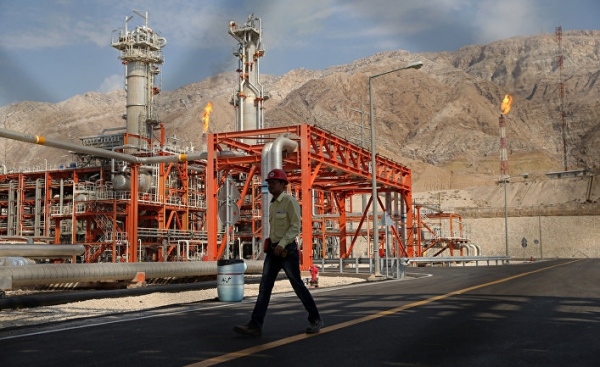
© AP Photo Ebrahim Noroozi
Gas field in Assalouyeh on the Persian Gulf in Iran
Executive Director of NITC also said: “during the negotiations with international financial institutions, the management of the banks expressed its readiness to Finance investment in the National Iranian tanker company in the amount of three billion dollars. According to our strategy, we plan to develop the activities of his company in terms of future aspects of Maritime transport of oil, different types of vessels for gas transportation, liquefied petroleum gas, liquefied natural gas and floating platforms for the production thereof”.
The problem of Maritime piracy
It should be expected that soon the Iranian oil tankers will literally flood the European ports, so as to continue to supply oil and products of its processing. They will be doing a lot of work.
However, sanctions are not the only problem for the marine of the country engaged in the transportation of oil and its derivatives. In fact, according to statistics, in 2015, Iranian oil tankers have been 70 attacks of sea pirates in the Gulf of Aden, although, fortunately, all of them managed to recapture.
Such a large number of attacks increased compared with the previous year is a serious concern for oil shipments Iran. Of course, so far all these attacks was to neutralize the professionalism of specially trained armed units that, according to the rules of the International Maritime organization, are located on each oil tanker.
By the way, the known facts about the capture of other foreign marine tankers by pirates based largely in the Gulf of Aden, however, the leadership of these countries does not confirm this information.
Another problem — Djibouti
International policy changes that have occurred in the region also affect marine transportation of Iran. We are talking about the severance of diplomatic relations with Saudi Arabia and several other Arab States with Iran. One of these States — Djibouti, a country with a population of less than one million, but all the ships passing through the Bab-El-Mandeb, are forced to swim in its waters to pay a certain sum of money.
Commenting on this situation, in interview to the correspondent of the newspaper Jam-e Jam, the Executive Director of the National Iranian tanker company said, “Bab-El-Mandab Strait is an international waterway and, according to the UN Convention on the law of the sea, even in territorial waters there is such a thing as a swimming of without harm to the coastal state, so ships can easily pass on this route, and no problems not occur, and if a state acts in violation of the law, we mean that it admits a mistake.”
Director of commercial Department of the National Iranian tanker company, Kamal Sardashti (Nasrolla Sardashti) reported that the rupture of diplomatic relations between the Islamic Republic of Iran and Djibouti does not affect the movement of tankers carrying Iranian crude oil through Bab-El-Mandeb and the Red sea. “In the current environment, he said, and even after the rupture of diplomatic relations with Djibouti every month, about eight in Iranian oil huge size pass of Bab-El-Mandeb Strait and delivering oil to the Mediterranean region”.
Stressing the fact that the severance of diplomatic relations did not create any hindrances for transportation of Iranian oil by sea, Sardashti said: “On this basis even after the lifting of sanctions and the resumption of crude exports of Iranian oil to European countries will not have any restrictions for the passage of oil tankers under the flag of Iran.”
A country with a coastline of 800 km 5
At the opening ceremony of the conference on the occasion of the 60th anniversary of the establishment of the National Iranian tanker company was attended by representatives of not only Iranian, but also the largest foreign oil, shipping, insurance, servicing and maintenance companies, international classification societies, banks and financial institutions.
It is worth Recalling that the extent of sea borders of Iran is 5 to 800 miles, so its trading activity largely depends on Maritime traffic. This is confirmed by the fact that currently 90% of foreign trade turnover of the Islamic Republic is carried out by sea. However, Iran shares borders with countries that either have no exit to open water. According to available estimates, the population of these countries is 300 million people.

